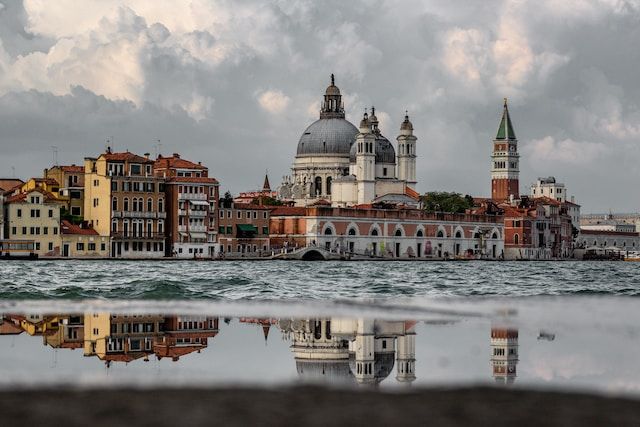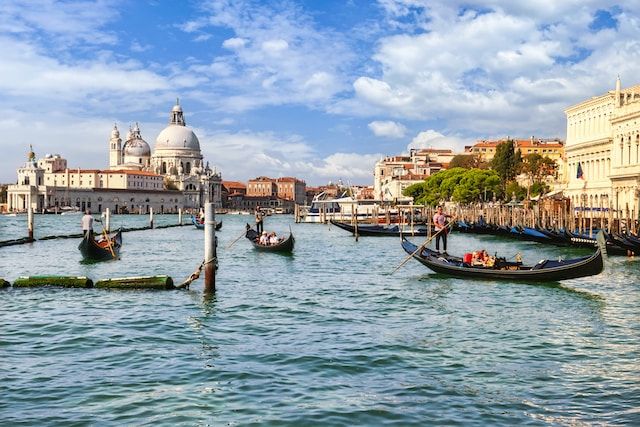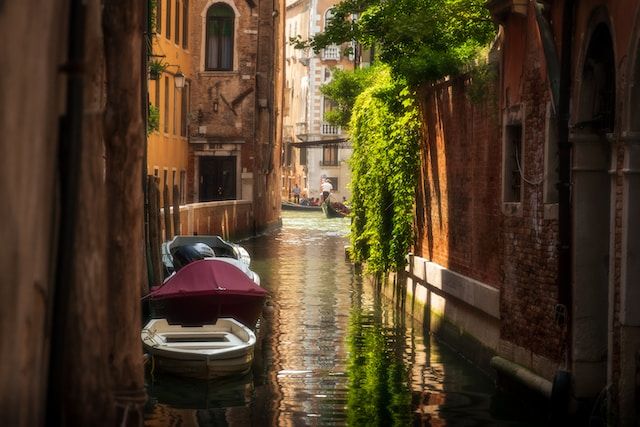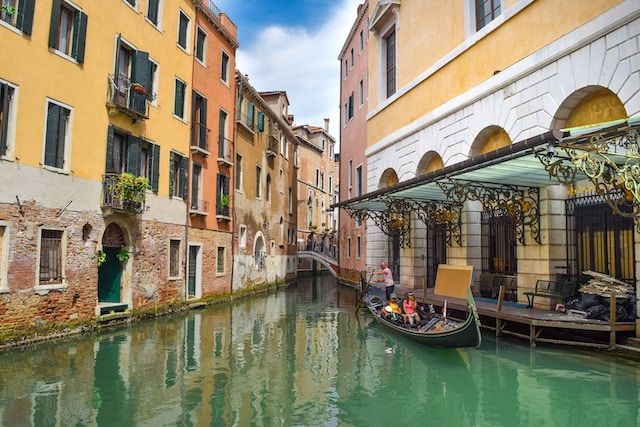Venice has been attracting millions of visitors every year with its picturesque buildings, winding streets, and enchanting waterways. However, Venice is a fragile city and it is facing a critical challenge: how to preserve its beauty while promoting sustainable tourism.
In this article, we will explore the sustainable issues in Venice, what the municipality is doing to make the city sustainable, and how to visit Venice sustainably.
Sustainable tourism in Venice: let's begin with a definition

Sustainable tourism refers to a type of tourism that aims to minimize the negative impact of the tourism industry on the environment, local communities, and cultural heritage.
It focuses on preserving natural resources and ecosystems while providing economic benefits to the local community.
Sustainable tourism also aims to promote responsible behavior among tourists and encourage them to adopt sustainable practices.
Sustainable tourism involves several practices such as reducing carbon emissions, conserving natural resources, promoting cultural heritage, and supporting the local economy.
For example, sustainable tourism can involve using renewable energy sources, reducing waste and plastic use, and promoting responsible tourism practices such as respecting local cultures and customs.
The benefits are numerous. It promotes sustainable economic development and provides jobs and income for local communities while preserving the natural environment and cultural heritage. Sustainable tourism also helps to reduce the negative impact of tourism on the environment and ecosystems, which is crucial for the preservation of our planet.
In other words, it is a critical aspect of responsible travel that ensures the long-term sustainability of our planet and communities. By adopting sustainable tourism practices, we can preserve the beauty of our planet and contribute to the well-being of local communities.
Let's now focus on the sustainable tourism in Venice and discover what the city is actually doing to preserve its heritage.
Sustainable Issues in the city

Venice faces several sustainable issues due to its unique location, fragile ecosystem, and the overwhelming number of visitors it receives.
One of the most pressing issues is the impact of mass tourism on the city's fragile infrastructure.
The city's waterways and canals are under constant pressure from the influx of visitors, who often use motorized boats, leading to increased pollution and erosion.
Another issue is the high level of waste generated by tourists, especially during the peak season. The excessive amount of plastic waste, littering, and overflowing trash bins create an eyesore for tourists and locals alike.
Could we say that Venice is a Sustainable City?
Venice, a truly tourism dependent city, is taking several steps to become a sustainable city.
In 2017, for example, the city implemented the "Venice 2030" project, which aims to reduce the environmental impact of tourism while promoting sustainable development.
The project includes measures such as reducing the number of cruise ships, regulating the use of motorboats, and promoting responsible tourism.
The municipality is also investing in renewable energy sources, promoting sustainable mobility, and preserving the city's cultural heritage.
We cannot forget to mention one of the most significant measures introduced in the last years: the ban on large cruise ships in the Venetian Lagoon. The Stop alle Grandi Navi campaign was in fact launched to protest against the negative impact of these ships on the fragile ecosystem and cultural heritage of Venice.
The municipality has also taken steps to regulate the use of motorboats and reduce the number of visitors in the city's historic center.
They are also trying to introduce a tourist ticket system, which would charge tourists for entry into the historical center, with the aim of monitoring daily tourist arrivals and raising funds for the preservation of cultural heritage sites.
These efforts demonstrate the city's commitment to preserving its unique beauty while promoting more sustainable tourism practices.
How to Visit the city Sustainably

There are several ways to travel around this UNESCO World Heritage site sustainably.
One of the best ways is to use public transportation, such as water buses or the iconic gondolas.
Walking or cycling (where it is possible, like at Lido island) is also a great option to explore the city and its hidden gems.
Choosing eco-friendly accommodations and restaurants that use local and organic products is also an excellent way to support the local economy and reduce the carbon footprint of your visit.
It is also essential to be respectful of the city's cultural heritage and avoid damaging historic buildings or monuments.
Do you know the Detourism Campaign promoted by the municipality?

"Detourism" is a movement that encourages travelers to explore off-the-beaten-path destinations and promote sustainable and responsible tourism practices.
This campaign aims to reduce the negative impact of mass tourism on the environment, cultural heritage, and local communities by promoting alternative destinations and sustainable travel practices.
As you have read through the article, Venice has been facing challenges with over tourism for several years, which has led to negative impacts on the environment, cultural heritage, and local communities.
The Detourism Campaign offers an excellent opportunity to promote sustainable and responsible tourism practices in Venice and encourage travelers to discover lesser-known destinations in the region.
The campaign can help reduce the negative impact of mass tourism on the fragile ecosystem of the Venetian Lagoon and preserve the cultural heritage of the city. It encourages travelers to explore alternative destinations, such as the nearby islands, which offer a more authentic and less crowded experience of the region.
Supporting local businesses and choosing sustainable accommodations and tour operators can also help promote responsible tourism practices in Venice!
The campaign is also important because it raises awareness about the impact of mass tourism on the environment and local communities. It encourages travelers to be mindful of their actions and promote sustainable travel practices that benefit both the traveler and the destination.
Overall, the Detourism Campaign is a positive initiative that promotes sustainable tourism practices and encourages travelers to make responsible choices when planning their trips.
In conclusion, Venice is taking important steps towards becoming a sustainable city, but it is also essential for tourists to contribute to this effort by adopting responsible behaviors and choosing sustainable tourism practices.
By visiting Venice sustainably, we can help preserve its unique beauty for generations to come.

